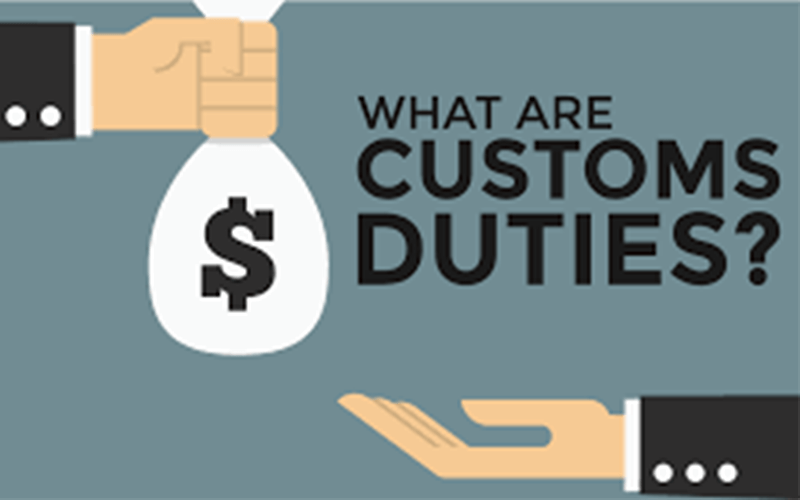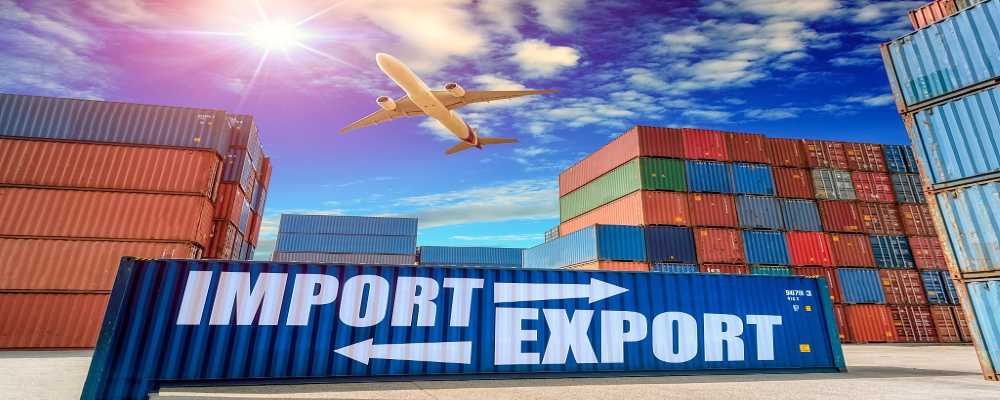2023-03-14
Customs regulations are constantly evolving, so it's important to understand the customs charges that apply to your shipments. In the current cost of living crisis, avoiding unnecessary customs charges is just one of the many critical steps you can take to ensure your business is financially secure. Let me tell you what are customs charges, who pays customs charges, what they do, and types of customs duty, so read on!
Customs charges are fees charged by the national customs department involving the import and export of goods. These fees include various forms of taxes and fees such as customs duties, value added taxes, excise taxes, and import link taxes. The main purpose of customs charges is to regulate import and export trade, protect national industries, maintain national revenues, and safeguard national security.

Do you know who pays customs charges? Customs charges are usually paid by the importer or exporter. These charges may affect the cost of goods and therefore the final price to the consumer. Consumers may also pay a portion of the customs charges in the form of VAT, for example.
Customs charges are a means by which the national customs service regulates import and export trade. When importing goods, customs charges can check and regulate the quality and safety of imported goods to ensure that they meet relevant standards and regulations. When exporting goods, customs charges can ensure that the exported goods meet the import requirements and standards of the destination country. By regulating import and export trade, customs charges can help prevent problems such as counterfeit and substandard goods and trade fraud, protect consumer rights and maintain market order.
Customs charges can be used to protect domestic industries by imposing tariffs and other forms. The imposition of high tariffs can make imported goods more expensive in the domestic market, thereby reducing competitive pressure on domestic manufacturers and promoting the development of domestic industries. By protecting domestic industries, customs charges can increase job opportunities and economic growth, thus improving the country's economic strength and international competitiveness.
Customs charges can serve as an important source of national revenue. The imposition of various forms of taxes and fees, such as import duties, excise duties, and value-added taxes, can provide the state with additional fiscal revenue to support government public utilities and infrastructure development. By maintaining national revenues, customs charges and charges can provide additional financial support to the government, thereby improving the country's standard of living and economic competitiveness.
Customs charges can also be used to ensure national security. When importing goods, customs charges can check and regulate the source and use of imported goods to prevent the entry of military equipment, dangerous chemicals and other illegal goods. When exporting goods, customs charges can control the type and quantity of goods to be exported, prevent the leakage of technology and intellectual property, and protect national security. The regulation of customs charges can help the country protect national security and guard against potential security threats.
Types of customs duty include import tariffs, export tariffs, value-added taxes, consumption taxes, import link taxes, export refunds, etc. There are different ways of collecting and calculating these taxes and duties.
Import tariffs are taxes and fees that need to be paid to customs on imported goods in order to protect domestic industries and increase national revenue. Import duties usually vary depending on the type of goods and the country of origin, and are usually calculated according to the price or weight of the goods. Importers are required to pay import duties to customs and can then pass these charges on to consumers.
Export tariffs are taxes and fees that need to be paid to customs on exported goods. Export duties are usually calculated based on the price or weight of the goods, but in some countries, export duties may also be a fixed amount or a percentage. Exporters are required to pay export duties to customs and can then pass these charges on to consumers.
Value Added Tax (VAT) is a tax that is paid on the increase in the value of goods during the production and sale process. VAT is usually paid by the manufacturer or supplier to customs and passed on to the final consumer. The calculation of VAT is usually based on the VAT rate and the price of the goods.
Consumption tax is a tax to be paid in the process of consumption. Consumption tax is usually calculated based on the type and price of the goods, and is usually a higher tax on high-end consumer goods. Consumption tax is paid by the consumer to customs at the time of purchase of the goods.
Import link tax is a tax that needs to be paid during the production, sale and consumption of imported goods. Import link tax is usually calculated according to the price of goods, by the importer and producer to pay to the customs.
Export tax refund is a tax incentive policy that the tax paid by the exporter to the customs can be returned to the exporter. This policy can reduce the burden of exporters and increase the export volume, thus promoting the export trade and economic development of the country.
Customs charges are a means for the national customs to regulate import and export trade. The main purpose of customs charges is to regulate import and export trade, protect national industries, maintain national revenues, and safeguard national security. The types of customs charges include import tariffs, export tariffs, VAT, consumption taxes, import link taxes, export tax refunds, etc. Each tax has different collection methods and calculation methods. Importers, exporters, producers, and consumers may all be required to pay different types of customs charges.
The role of customs charges includes maintaining national revenues, protecting domestic industries, promoting international trade balance, and protecting national security. Customs charges can help the country control the quantity and quality of goods imported and exported, thus protecting the country from low-quality goods and malicious imports and protecting the development of domestic industries. At the same time, customs charges can also promote the balance of international trade and avoid over-dependence of certain countries on imports or exports, thus reducing trade frictions and international relations tensions. Customs charges can also serve as an important source of national revenue to support the country's public services and infrastructure development and to promote economic and social development.
Customs charges also play an important role in international trade. In the context of globalization and free trade, customs charges also face a number of challenges and problems. Protectionist policies of some countries may lead to unfair and discriminatory customs charges, which may result in trade wars and trade frictions. In addition, customs charges need to adapt to the trend of digitization and automation, adopt more advanced technologies and methods, improve customs efficiency and transparency, and reduce uncertainties and risks in trade.
In conclusion, customs charges are a means for national customs to regulate import and export trade, and their role includes maintaining national revenues, protecting domestic industries, promoting international trade balance, and protecting national security. Customs charges need to be reasonably formulated and adjusted according to the characteristics and needs of different countries and regions in order to ensure fair, transparent and sustainable development.
If there is anything you do not understand, feel free to contact us, we will be happy to answer your questions for free!

As a customs clearance agent, whether it is export clearance or import customs clearance, as long as you have doubts may wish to look at it.
2022-12-13

Do you want to importing into China, but don't know what regulations to follow? If you have any questions, ask us and we will reply as soon as possible.
2022-11-24

Are you curious about how import duties and taxes are calculated? Then, JIKEship takes you to step by step to understand duties and taxes.
2022-11-24
We use third-party cookies in order to personalise your experience.
Read our cookie policy